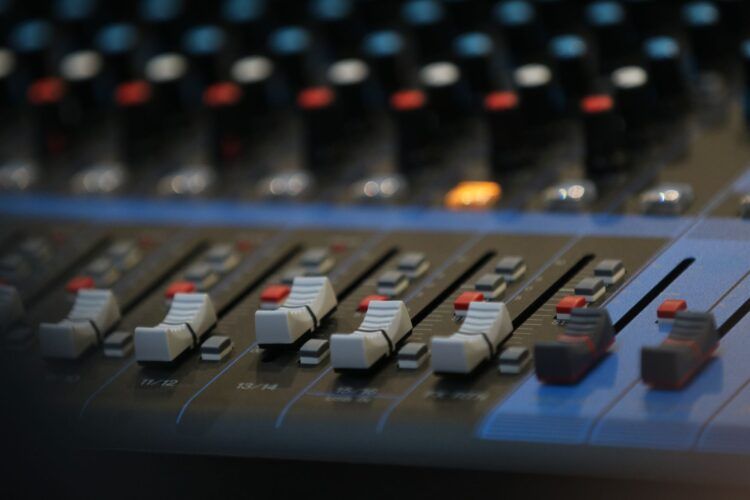Music production has undergone continuous transformation throughout the past century; with a promising outlook marked by ongoing technological advancements, several significant trends are currently shaping its future. These trends include cloud-based collaboration, the integration of artificial intelligence in music composition, and the burgeoning field of mobile music production – this article presents a brief primer.
Cloud-based collaboration for music producers
One of the transformative developments in music production is cloud-based collaboration – this innovation has redefined how producers collaborate, facilitating them to work seamlessly together, irrespective of geographical distances. In fact, online collaboration in music production is now so prevalent that new producers and students even learn about tools like Dropbox as part of their studies at music production schools around the world.
Cloud-based collaboration offers myriad advantages, most notably by facilitating easy access and file-sharing. Rather than engaging in the cumbersome process of exchanging large audio files via email or other file-sharing methods, producers can now upload their tracks to cloud storage platforms. This enables collaborators to download and work on these files in real-time, thus streamlining the production process.
In addition, cloud-based collaboration fosters efficient communication among members of the production team; through messaging platforms and video conferencing tools, producers can exchange feedback, discuss ideas, and collectively make decisions. This obviates the need for incessant back-and-forth communication through emails or phone calls, thereby saving time and ensuring everyone is perfectly in sync.
Artificial intelligence in music composition
Artificial intelligence (AI) has made significant inroads in diverse domains, including music composition. AI’s role in the industry has evolved beyond prevailing skepticism and is now increasingly embraced as a creative tool among several high-profile artists. AI algorithms and machine learning techniques are harnessed to craft original compositions, aid musicians in their creative processes, and even generate music autonomously.
One noteworthy application of AI in music composition involves the development of generative models; these are trained on extensive repositories of existing sound data, enabling them to discern patterns, structures, and styles. By analyzing this data, AI algorithms can produce novel musical compositions that mirror the characteristics of specific genres or artists.
AI also serves as a valuable resource for musicians during the creative process; for instance, AI algorithms can analyze an artist’s previous compositions and offer suggestions for chord progressions, melodies, or harmonies that align with their distinctive style. This functionality can help musicians overcome creative blocks and explore fresh musical ideas.
The rise of mobile music production
Mobile devices such as smartphones and tablets have emerged as powerful tools for music production, granting artists the freedom to create music virtually anywhere, at any time. The ascendancy of mobile music production is a trend worthy of close observation.
One of the primary advantages of mobile production is its portability – musicians are no longer constrained by bulky equipment or expensive studios; armed with just a smartphone or tablet and a selection of production apps, artists can wield a complete recording studio at their fingertips. This mobility encourages spontaneous creativity and the capture of musical ideas on the go.
Overall, mobile music production boasts an extensive range of features and capabilities – various production apps offer virtual instruments, synthesizers, drum machines, and effects, empowering musicians to craft professional-quality tracks. These apps often feature intuitive interfaces and user-friendly controls, catering to both novices and seasoned producers.
Concluding remarks
In summary, the future of music production holds a wealth of exciting technological trends; cloud-based collaboration tools are rendering it easier for producers to work harmoniously across distances, AI is emerging as a creative companion, assisting with composition and inspiring new ideas, and mobile production is granting artists the freedom to compose at their convenience. As technology continues to progress, the horizons of music production remain boundless.
Featured image credit: Pexels




